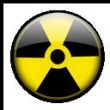Do you have to use each step when constructing chords? |
Music Theory |
| Skold |
|
|
Joined: 14 Mar 2008 United States  Karma Karma: 3 
|
Because I've tried to find the 5th in C7, but I can't find it anywhere in the chord. I know that you construct it by using the step 1-3-5-b7, so believe me when I say I understand how to construct the chord.
Why is there no 5th in the chord? Do I HAVE to use every step? |
| brodyxhollow |
|
|
Joined: 04 Feb 2008 United States  Karma Karma: 2 
|
The fifth can usually be left out in larger constructions of chords. The more notes involved in the chord, the less your going to be able to fit some things. However, if you play a diminished chord, the fifth is what's going to make it. |
| blackholesun |
|
|
Joined: 04 Jan 2007 United Kingdom  Licks: 1 Karma: 11  Moderator Moderator
|
Depends which variation of the chord you use. If you are using the chord library tool at the top of the page then the first variation doesn't contain a G, but the 2nd variation does. You don't have to use each step when constructing chords. A full 13th chord for example contains 7 notes (1, 3, 5, b7, 9, 11, 13), which would be impossible to play without omitting some of the notes. |
| brodyxhollow |
|
|
Joined: 04 Feb 2008 United States  Karma Karma: 2 
|
yeah, completely. i guess that's close to what i was trying to get at but didnt mention. |
| Skold |
|
|
Joined: 14 Mar 2008 United States  Karma Karma: 3 
|
@bhs
But you would HAVE to play the 7th, right? Because that's like the bridge to the other notes, correct? |
| league |
|
|
Joined: way back United States  Lessons: 2 Karma: 10 
|
Does that mean that only the notes that alter the major scale in each key is significant. |
| blackholesun |
|
|
Joined: 04 Jan 2007 United Kingdom  Licks: 1 Karma: 11  Moderator Moderator
|
Skold says: you would HAVE to play the 7th, right? Because that's like the bridge to the other notes, correct?
The 7ths and 3rds determine whether a chord is a dominant 13th (3, b7), major 13th (3, 7) or minor 13th (b3, b7), so you couldn't leave them out. The main feature of a 13th chord is the dissonance between the 7th and the 13th, for C13 this would be Bb and A. That leaves the root, 5th, 9th and 11th, all of which can be left out. You might think it's a bit weird leaving the root out, but if you are playing with a bassist as well then he/she will probably be playing the root of the chord, so you don't explicitly need to. |
| Skold |
|
|
Joined: 14 Mar 2008 United States  Karma Karma: 3 
|
Ok, thanks for the help, mate. |
| blackholesun |
|
|
Joined: 04 Jan 2007 United Kingdom  Licks: 1 Karma: 11  Moderator Moderator
|
league says: Does that mean that only the notes that alter the major scale in each key is significant.
No, that's incorrect, although I think I know what you are trying to say.
All the notes in a chord are significant, but some are more significant than others. As I said above, if you were playing a maj13th chord, then you would need the maj3rd and the maj7th to determine what kind of 13th the chord was, and they are both from the major scale.
If you were playing in C and you wanted to imply the lydian mode (1, 2, 3, #4, 5, 6, 7) by playing chords then you would have to play the #4 (F#), which is the same as a #11. Sticking with 13th chords, the chord you would need to play would be Cmaj13(#11). The #11th is outside of the major scale, and is very significant. Otherwise you could play a Cmaj7#11 chord to imply C lydian harmony. Playing a C7#11 chord implies C lydian dominant harmony, which is the same as lydian but with a b7 instead of a 7. |
| league |
|
|
Joined: way back United States  Lessons: 2 Karma: 10 
|
Cool man now I get it. Im gonna use this explanation as a reference. You should write a lesson. |
| blackholesun |
|
|
Joined: 04 Jan 2007 United Kingdom  Licks: 1 Karma: 11  Moderator Moderator
|
league says: You should write a lesson
I dunno, there's a lot of stuff I could put in a lesson about music theory, and I think it's better for people to learn about it from books or theory-dedicated websites and then ask questions on here if they have any, rather than for me to write a lesson on everything about theory. |
|
|






